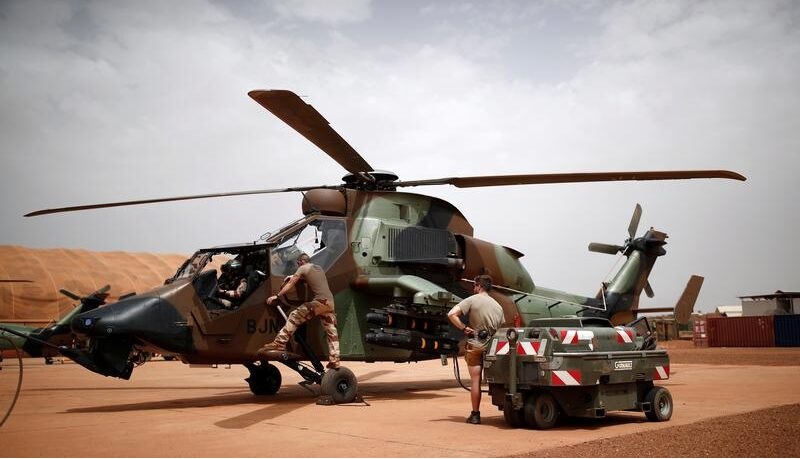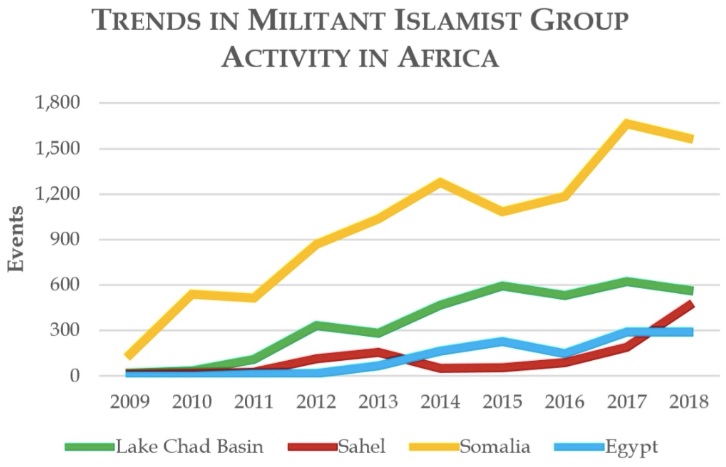
As Iran launches ballistic missiles at US bases in Iraq, the US looks to draw down force numbers in Africa. Meanwhile, Russia and China increase their security presence on the continent.
United States Defense Secretary Mark Esper is reportedly evaluating proposals for a major reduction or even a complete pullout of US forces from West Africa.
According to the New York Times: “The deliberations stem from a push to reduce post – 9/11 missions battling terrorist groups, and instead to refocus Pentagon priorities on confronting so-called Great Powers like Russia and China.”The background
Since 2001 the U.S. has significantly increased its military footprint in the Middle East and parts of Africa, as part of a broader effort to combat terror organizations like Al Qaeda, Al Shabaab, the Taliban, and ISIS.
As some terror groups lost ground in the Middle East, some terrorists moved into fragile parts of Africa, particularly the Maghreb and the Sahel – a semi-arid region across West and Central Africa: which emboldened terrorist groups in the region.
Another notable event that emboldened terror groups in the Sahel is the US-led, NATO regime change campaign that ousted Muammar Gaddafi of Libya in 2011. NATO’s bombing of Libya and the death of Muammar Gaddafi led to the total collapse of the Libyan state.
Located centrally in North Africa, Libya stretches southward into the Sahara and Sahel.
Under Gaddafi, Libya played a pivotal role in regional security, and the collapse of Gaddafi’s government increased fragility in across the Sahel.
Weapons flowed freely from Libya into the Sahel, this coupled with the influx of experienced terrorists from the Middle East greatly enhanced the capabilities of belligerent Islamist groups like Boko Haram and Al Qaeda in the Islamic Maghreb.

In the space of a few years after, Boko Haram went from a relatively unknown Islamist militant group operating in Northeast Nigeria, to an international nightmare. By 2014, it declared an Islamic caliphate in parts of Northeast Nigeria and controlled large swathes of land between Nigeria and neighbouring countries like Chad, Cameroon, and Niger.
The destabilising effects of the Libya debacle also fueled insurgency and separatism in Mali. A Tuareg rebellion in 2012 set off massive displacements, as people fled the fighting in the north of the country. This was followed by a coup that deposed President Amadou Toumani Toure, and general unrest across the country.
The Sahel’s ability to fight terror will be compromised
In response to this growing instability and terrorism, African governments appealed for international support. France launched Operation Barkhane, under which 4,500 French troops provide military assistance to some West African countries. The U.S. also renamed Operation Enduring Freedom to Operation Juniper Shield, increasing its military assistant to Sahel and Saharan countries.
One key landmark of US military engagements in West Africa is the $110m U.S. Air Base in Niger Republic, a country that sits in the Central part of the Sahel.
This airbase has been a major boost to intelligence gathering and logistics for counterterrorism operations in West Africa. Notwithstanding, part of the plan being considered by Esper is to shut down the base.
“Esper’s team has questioned the value of those efforts and wants to scale back missions to counter militants who lack the demonstrated ability and intent to attack the United States on its own soil, the officials said. None of the terrorist groups operating in West Africa are said to meet this heightened assessment standard,” reports the New York Times.The threat West African countries face from Islamist groups like Boko Haram and offshoots of Al Qaeda and the Islamic State operating across the Sahel is still very much alive and well.
Even the U.S. State Department understands the risks: “ISIS is outpacing the ability of regional governments and international partners to address that threat,” Secretary of State Mike Pompeo said last month at a meeting of nations fighting the terrorist group.On Christmas Eve, Boko Haram fighters stormed a community in Northeast Nigeria, killing at least 7 people. Last Tuesday, 35 civilians were killed by suspected Islamist militants in Burkina Faso. In October, at least 15 people were killed and two seriously injured in an attack on a mosque in northern Burkina Faso.
The Syrian mistake
In the light of these attacks, and the questionable capability of regional security forces to combat terrorism, a drawdown of US Forces in West Africa at this time seems premature.
The U.S. may be repeating the same mistake it made in Syria, when President Trump abruptly withdrew U.S. soldiers from Northern Syria, exposing the Kurds to fatal attacks from Turkey-linked militias.
Military assistance from both France and the U.S. has greatly contributed to security in the Sahel and the broader West Africa region.
As such, a drawdown of U.S. military assistance could significantly dent the capacity of regional security forces to sustain the pressure against terrorist groups, this could lead to an upsurge in terror attacks.
US troop drawdown from West Africa could also be counterproductive within the context of great power competition with China and Russia.
The absence of U.S. military expertise and hardware will create a vacuum China and Russia can fill. To prevent any setbacks in pushing back terrorism, West African countries are likely to look towards China and Russia for military assistance.
In recent times China and Russia have been creeping into the African security arena.
Last year, China hosted the first China-Africa Peace and Security Forum in Beijing, the event was attended by 100 representatives from 50 African countries.
The event was seen as a clear indication that Beijing sees itself playing a bigger role in peace and security in Africa.Russia on the other hand has a renewed interest in Africa. Nowhere has this interest been felt than in security. Russia has played a pivotal role in the peace process between the government of Central Africa Republic and rebels.
Moscow is also a staunch supporter of General Haftar Khalifa of Libya who’s battling to bring Tripoli under his control.It is impractical for West African countries to rely on foreign armies – in perpetuity – for security.
But if the plan being considered by Esper becomes policy, it is imperative that the US engages with security stakeholders in West Africa, to assess the security situation and set a reasonable withdrawal timetable of U.S. forces, to prevent an upsurge of terrorism.
